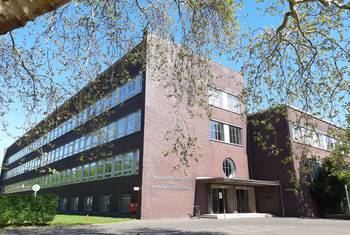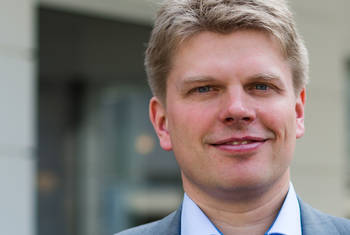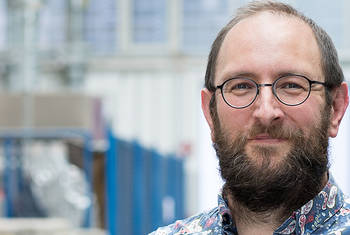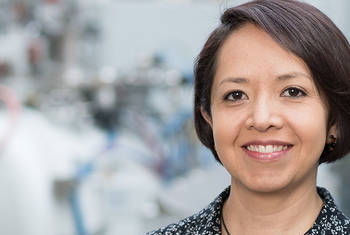Stefan Wippermann How Do Electrochemical Reactions Work At The Quantum Level?
Stefan Wippermann is Group Leader of the Atomistic Modeling Group in the Department of Interface Chemistry and Surface Engineering at the Max-Planck-Institut für Eisenforschung in Düsseldorf. A BMBF “NanoMatFutur" group leader in the same Department, Wippermann is also the Scientific Coordinator of the International Max-Planck Research School on Interface-controlled Materials for Energy Conversion. Having completed his PhD at Paderborn University, Wippermann has also worked at the University of California, Davis and Tsinghua University, Beijing. Wippermann’s main research interests include light absorbers for next generation photovoltaics, electrochemical solid-liquid interfaces and 1D electronic systems.
Area of Research
Material Science
since 2015
Scientific Coordinator
International Max-Planck Research School on Interface-controlled Materials for Energy Conversion
since 2014
Group Leader
BMBF NanoMatFutur
since 2013
2011-2013
Post Doc
University of California
Davis, Department of Chemistry (Prof. Giulia Galli)
2010-2011
Post Doc
University of Paderborn (Universität Paderborn)
Theoretische Materialphysik (Prof. Dr. Wolf Gero Schmidt)
2006-2010
Ph.D.
University of Paderborn (Universität Paderborn)
Understanding Substrate-Supported Atomic-Scale Nanowires from Ab Initio Theory (Summa Cum Laude)
2001-2006
Study of Physics
University of Paderborn (Universität Paderborn)
-
-
-
-


Max-Planck-Institut für Eisenforschung
DüsseldorfNovel alloys for automotive lightweight design and airplane turbines, materials for sustainable energy conversion and storage, and the development of big data and machine learning methods – these are just a few examples of the research areas that are being investigated by the scientists of the Max-Planck-Institut für Eisenforschung. The team of engineers, material scientists, physicists, and chemists develops tailored materials and methods for mobility, energy, infrastructure, and information. To this end, the researchers study complex materials with atomic precision under real environmental conditions.
Department
Dept. of Interface Chemistry and Surface Engineering
The Department of Interface Chemistry and Surface Engineering is conducting fundamental research in the electrochemical sciences, with a strong focus on corrosion and adhesion science as well as electrochemical energy conversion.
Map
Electrochemical processes play a central role for sustainable energy conversion and storage technologies, such as water splitting, hydrogen fuel cells and batteries. In order to maximize the efficiency, stability and life expectancy of these devices, it is necessary to develop accurate simulation techniques to explore and predict structural properties and chemical reactions at electrified surfaces in contact with liquid electrolytes. In this video, STEFAN WIPPERMANN puts forward ideas on how to simulate electrochemical processes with controlled electrode potential from first principles, i.e. solving the respective fundamental physical equations on high performance computers. The present work reveals the response of liquid water to an electric field at electrode/electrolyte interfaces under potential control. These developments open the door towards predicting and understanding the precise mechanistic details and dynamics of electrochemical processes at the quantum level.
LT Video Publication DOI: https://doi.org/10.21036/LTPUB10942
Dielectric Properties of Nanoconfined Water: A Canonical Thermopotentiostat Approach
- Florian Deißenbeck, Christoph Freysoldt, Mira Todorova, Joerg Neugebauer and Stefan Wippermann
- Physical Review Letters
- Published in 2021








